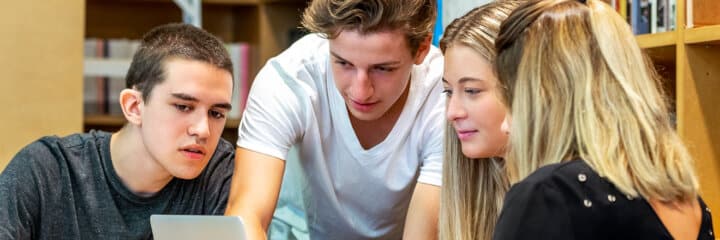Students as scientists: a study of motivation in the science classroom
Jenny Hellgren visar i sin studie att autentiska frågeställningar och arbetssätt ökar elevers motivation för naturvetenskap.
Jenny Hellgren
Docent Magnus Österholm, Umeå universitet
Professor Jim Ryder, University of Leeds
Umeå universitet
2016-06-02
Forskning på schemat : högstadieelevers motivation för naturvetenskap
Students as scientists: a study of motivation in the science classroom
Institutionen för naturvetenskapernas och matematikens didaktik
Students as scientists: a study of motivation in the science classroom
School science and mathematics have been criticized for being difficult, de-contextualised and teacher-centred. This thesis concerns student motivation in science and mathematics in secondary school, and in particular student motivation in relation to student-teacher-scientist partnerships (STSPs) and an authentic science task called the Medicine Hunt where students help scientists to find new antibiotics. The purpose of this dissertation is to interrogate the importance of authentic tasks for motivation in the science classroom. The thesis takes a starting point in motivation theories, with self-determination theory (SDT) in focus, and also builds on the hierarchical model of intrinsic and extrinsic motivation (HMIEM). A mixed-methods approach is used first, to find out what factors are important for students’ positive emotions and experiences in the classroom, and second, to learn more about the importance of authentic tasks using student interviews and observations in combination with questionnaires that evaluate students’ motivation. The studies reveal that the notion of having learnt something and intrinsic motivation are central for students’ positive emotions. Further, many situational factors, such as teacher support, autonomy, clear goals, and novelty of the task are central for both positive emotions and experiences in science and mathematics. Regarding the Medicine Hunt, students were positive and referred most of their positive experiences to science-related aspects, and the novelty of authentic science. Teachers gave different opportunities for competence, autonomy or relatedness when implementing the project in their classrooms, and these differences were more important for students’ initiatives and outcomes than students’ initial contextual motivation for school science. Students’ contextual motivation for science can change and the Medicine Hunt arrested the well-documented decline in students’ intrinsic motivation for science during the secondary school years. This thesis argues that authentic tasks implemented as STSPs such as the Medicine Hunt can contribute considerably to school science by providing motivating situations that channel students’ positive emotions and positive experiences, and that is possible to create authentic science learning situations in which both more and less motivated students can flourish. The findings highlight the teachers’ role in supporting the students’ process of extending their understanding of what science can include and in supporting students’ confidence as they adopt a broader and more authentic view of science when learning as part of a successful authentic STSP science project. The findings also suggest that more research focussing on motivation in different authentic situations, and how students’ experiences of authentic science can affect motivation in the longer term, is needed.
Relaterade länkar

Juridik
 Gy–Vux
Gy–Vux
Fysisk aktivitet och motorik i förskolan
 Fsk
Fsk


